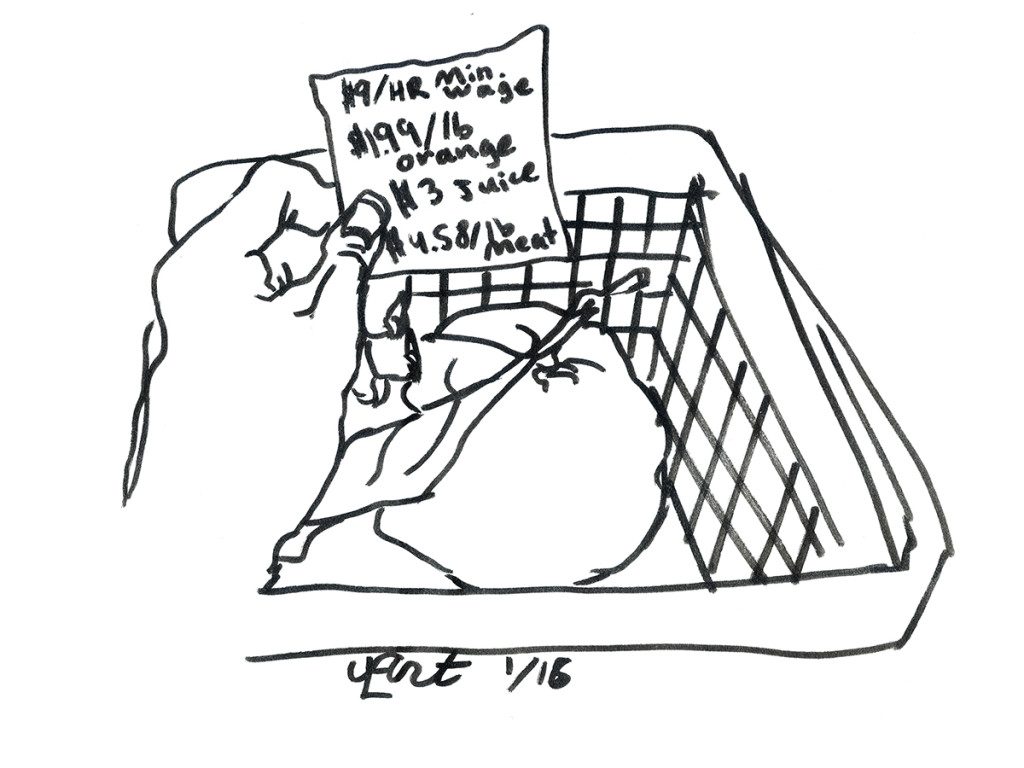
As Sacramento became abuzz with business concerning the new legislative year on Jan. 4, lawmakers will still have to tackle last year’s leftover legislation that did not reach both houses or the governor. With bills ranging from raising the minimum wage to creating state guidelines for police body cameras, those in Sacramento will have a tough workload, not only due to the leftovers, but also because of this year’s new laws that are predicted to heavily emphasize tighter gun restrictions.
Though their workload may have doubled, our state lawmakers cannot slack at their jobs by dismissing leftover legislation in favor of the up and coming. This is not to say that the previous year’s bundle of unpassed laws are more important than the proposed laws dealing with gun restrictions. This is more of a critique on personal priorities of the state lawmakers than the laws they craft.
2016 is not only an election year for the mess of Republican candidates and the Democratic duel between Hillary Clinton and Bernie Sanders, but also state government officials; in California, every Assembly seat and half the Senate seats will be up for grabs of any politician working in Sacramento — therefore they shouldn’t step on the toes of the volatile electorate voting in November.
According to a Wall Street Journal poll, American voters have become dissatisfied with how politics in Washington have been conducted, with 57 percent saying “they’d rather fire their member of Congress than re-elect him” — a phenomenon that is not new to the political landscape. Yet, such a phenomenon weighs heavy on legislators to the point that they, as former deputy secretary for Republican Gov. Arnold Schwarzenegger states, “won’t want to ruffle any feathers because this electorate is so volatile.”
Last year’s leftover legislation dealt with highly controversial topics, from transparency of prescription drugs’ prices to state-paid family leave. When politicians respond to these topics in a way that flares the electorate’s anger, this can be detrimental to their standing in politics.
Politicians may not want to lose potential votes via taking a direct stand on a controversial issue — especially during an election year — but that is no excuse to prevent the progress of previous legislation.
Our state government becomes inept when it does not do its duty — to pass or veto laws for the benefit of the public. To slow down any progress that was occurring with the potential passing of these leftover laws for the sake of reelection is a selfish move that no legislator should ever make. One of the major roles of a legislature is to represent their “various constituencies, mainly people in each lawmaker’s electoral district.” Legislators should forfeit their title if they seek to represent their own interests rather than their districts or state.
Furthermore, passing legislation is one of the few ways to create concrete change in society. Societal movements can bring about awareness of oppression and demands for change, yet it is only legislation that can turn the goals of these movements into a reality. (That is not to say that legislation is the end-all for any needed change in society). If voters begin to see that their government is not promoting any slight change, even for a short time, their frustration may lead them to more radical tendencies in their demands toward government, which up-and-coming legislators will meet with radical agendas. Currently, the 2016 Republican campaign is riddled with such frustration. The presidential candidates are “trying to outdo each other in radical appeals” to the public. Ted Cruz wants to rid the world of the Internal Revenue Service and Donald Trump proclaims he shall build a wall between America and Mexico. While these claims sound ridiculous, many voters are taking a liking to these candidates, because they appear to be willing to create definite change — instead of being some political wet fish.
Change is needed now more than ever. (But then again when hasn’t it been needed?). Our legislators, no matter if it’s just at a state level, cannot afford to be wishy-washy about their stance on legislation. If you wish to gain voters, then do your job. Make a change during a time when many voters have little faith in American politics. If you don’t get re-elected, so what. At least you did something.








